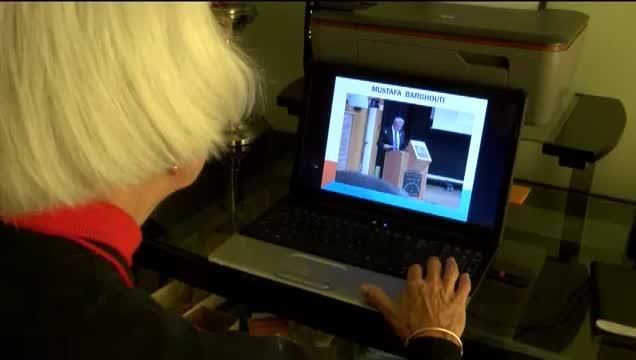Participants are tested on orientation (month + date + year); language (verbal fluency + picture naming); reasoning/computation (abstraction + calculation); visuospatial (three-dimensional construction + clock drawing); executive (problem solving) and memory abilities.
Participants were provided their score and written information about SAGE, and were advised to show it to their physician for interpretation and potential further screening or evaluation based on their health history. All were told that this test represented their baseline to be compared to future re-screening by their physician. Missing six or more points on the 22-point SAGE test usually warrants additional follow-up by the physician.
Scharre, who specializes in treating Alzheimer's disease, said treatments for Alzheimer's and dementia are more effective when started in the earliest stage of the disease. Unfortunately, patients with Alzheimer's disease often wait three to four years after their symptoms first appear to seek treatment.
Some 5 million Americans have Alzheimer's disease, and those numbers are expected to almost triple by 2050. An additional 3 percent to 22 percent of those over 60 years of age are thought to currently meet criteria for Mild Cognitive Impairment as well, Scharre said.
"Hopefully, this test will help change those situations," Scharre said. "We are finding better treatments, and we know that patients do much better if they start the treatments sooner than later."

Researchers have developed an at-home test that can help doctors spot early symptoms of cognitive issues in their patients, like Alzheimer's disease. Best of all, the test is cheap, self-administered, and a new study shows, can be just as effective as other costlier and more time-consuming tests.
(Photo Credit: Ohio State University Wexner Medical Center)

The first at-home test to spot early signs of conditions like Alzheimer's disease has been developed by researchers at The Ohio State University Wexner Medical Center. The Self-Administered Gerocognitive Examination test, has been shown to be effective in spotting the early signs of cognitive decline, allowing patients and doctors to address conditions like Alzheimer's disease much earlier.
(Photo Credit: Ohio State University Wexner Medical Center)
Source: The Ohio State University Wexner Medical Center